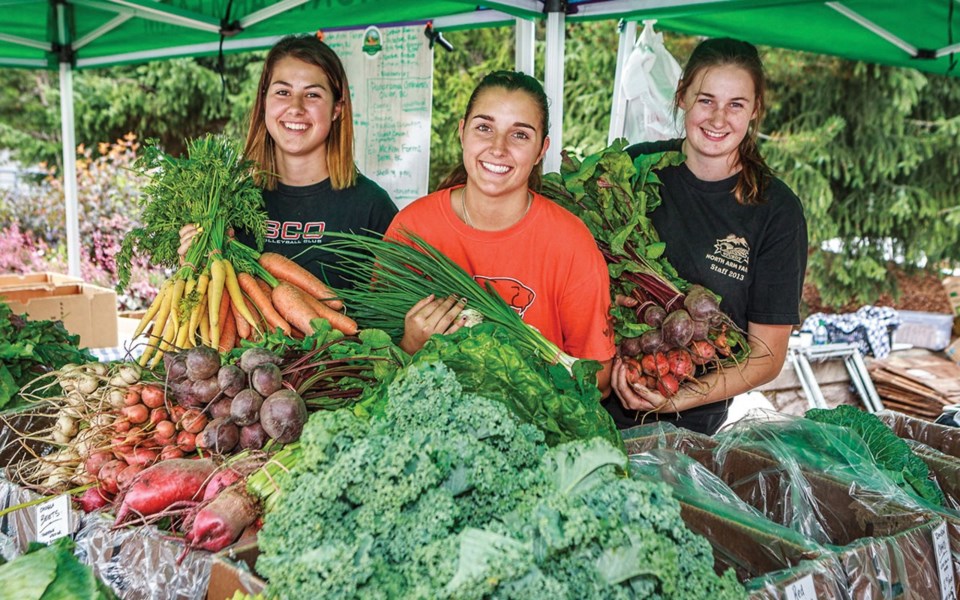Forthcoming provincial rules will require any food produced or processed in B.C. that is marketed as organic to be certified through an accredited program, good news for consumers and farmers' markets hoping for more transparency around the food we eat.
Under the current system, food producers in the province do not need to be certified in order to use the "organic" label, leaving consumers unsure if they're getting the real deal.
That changes Sept. 1, when Victoria will begin mandating that all domestic organic food and beverage producers be certified through a provincial or federal accreditation program.
It comes as a welcome development for farmers' markets, which have wrestled with organic labelling for years.
"It will provide a lot more clarity," said Chris Quinlan, manager of the Whistler Farmers Market. "Farmers' markets have struggled with transparency across Canada and the United States. It's always a big, big conversation."
Whistler's market is already ahead of the curve, as it has required its vendors for years to provide confirmation of their organic certification before labelling their products as organic. The market even goes a step further by asking vendors to list exactly where their produce is grown.
"Anything that's organic is labelled that way, and anything that isn't is labelled non-organic. And we've had that process in place ever since I've been here," Quinlan added.
The BC Association of Farmers' Markets recommends organic vendors provide certification at their stall, and encourages member markets to "develop, share and be transparent in their own set of policies and guidelines around the labelling, signage, and use of the terms organic, no-spray, etc."
But, being solely an advocacy group, the association, which represents 146 markets, does not have the authority to enforce compliance, which is where the province's new regime of verification officers will come in.
They will be able to respond to complaints of improper labelling or failure to provide certification by visiting farms to ensure their growing and production methods meet organic standards. As of now, there are no plans in the works to make the results of those inspections public, although there has been some talk about changing that in the future.
The crackdown will also go towards curbing the proliferation of resellers at farmers' markets, noted Quinlan. The entrepreneur cited the example of a market in Peterborough, Ont. that has become almost completely overrun by resellers.
"These people are literally going to the wholesale depot, picking up their produce, bringing it in and putting a farm label on it," he explained. "That's how far this has gone with people trying to take advantage of that farmers' market brand."
Quinlan also sees the new regulations as a way for farmers' markets to separate themselves even further from the big-box grocery chains, which often tout their produce as "market fresh" despite being shipped from Mexico.
"It goes further towards telling people that come to that market that they can actually talk to the producer. It's a big differentiator between farmers' markets' organics and organics at the grocery store," he said. "I can't go to the produce guy in the grocery store and say, 'Hey, what am I going to do with this okra tonight?' Whereas when I buy something from somebody at the farmers' market, I can talk to them."
Among the new organic requirements, produce and grains must not be grown with pesticides, herbicides, fertilizers or genetically modified organisms; animals cannot be fed byproducts of other animals, or be kept caged indoors; and processed organic foods must not contain chemical preservatives or synthetic additives.




